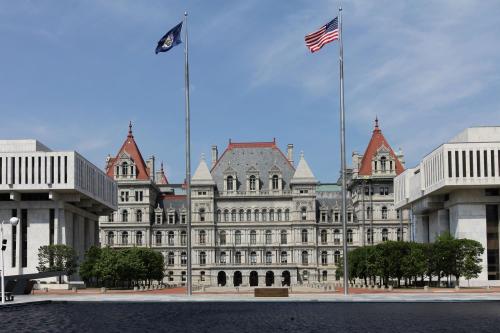As President Obama travels to East Africa next week, it’s a good moment to ask if his legacy towards that continent and its many ails—but also its many opportunities—can grow larger than it is today.
As senator, Obama was passionate about several conflict and humanitarian matters on the continent. He was involved in proposing and promoting new policies towards war zones in Congo and Sudan. His first book called attention to the continent’s promise and his election as the nation’s first African-American president suggested that great new things might lie ahead.
But alas, it has not really played out that way. This is not a critique of Obama. Crises and conflicts of greater immediate urgency for American national security—particularly in Iraq and Afghanistan—demanded his time and the nation’s resources. Russia and China presented broader strategic challenges of different types. The Arab spring spilled over into Africa, to be sure, but was primarily a phenomenon affecting the broader Middle East.
Luckily, Africa writ large has made some progress on Obama’s watch nonetheless. Some 20 of the continent’s over 50 countries have moved in democratic directions, usually with better economic policies and more accountable governance. Aided by groups like the Gates Foundation and many other philanthropic organizations, huge headway was made in areas such as child and maternal health. The African Union began to take more responsibility for conflicts on its own territory, with various members and sometimes the organization itself sending more effective peacekeeping forces to Somalia, Sudan, Congo, and elsewhere. All is certainly not lost.
Towards improved peacekeeping
With only 18 months left in his presidency, Obama now faces a choice. Having held an African leaders’ summit in Washington last summer—one that was unfortunately largely overshadowed by the Ebola crisis that was reaching its peak at that point—he is positioned to make a push for a lasting legacy. But what might that legacy be? Given budget constraints in Washington, it will most likely not be in the classic domain of foreign aid or development assistance.
I have a suggestion: that Obama challenge America’s traditional reluctance to make even modest contributions towards peacekeeping operations in Africa’s conflict zones. To be sure, the United States has paid its U.N. dues and sometimes provided limited logistics help. It has also trained the continent’s own soldiers, most recently through Pentagon initiatives—including the creation of Africa Command at the end of the Bush presidency and the Army’s use of Regionally Aligned Forces during the tenure of General Raymond Odierno as Army chief of staff. These have been helpful, if generally modest, measures.
Nothing enormous is realistic, or required, at this juncture. However, in conflict zones ranging from Congo to Sudan to Nigeria to Libya, the United States should look for an opportunity to deploy one or two brigades of ground forces configured to help those countries improve their own military performance.
This is not a call for America to look for a big new war, or a substantial combat role in Africa. But with the development of units and methods designed primarily to strengthen indigenous forces’ military capabilities in recent years in Iraq and Afghanistan, the United States now has tools and expertise that can help address these kinds of problems. Specifically, its Advise and Assist Brigades, as well as its Security Force Assistance Brigades (which are really just temporary reconfigurations of existing units to mentor and deploy with host-nation military forces) offer great promise.
Of course, any deployment needs to be part of a well-designed overall policy. For example, even though I am inclined to think that such American units could greatly strengthen the military of the Democratic Republic of Congo, we first need to see progress in democratic reforms. The 2016 elections in that country must be reasonably free and fair, with President Joseph Kabila agreeing to step down as the constitution requires, and the nation’s new government must demonstrate a serious commitment to military reform. It is time to wean the country’s military from dependence on a U.N. force that is largely doing its job for it and think about a successive phase when the country can begin to stabilize its own territory.
On his trip this month, Obama cannot design the details of any such initiative. But he can begin conversations about multilateral plans and new strategies for addressing the continent’s stubborn conflicts. These plans need to be appropriate for the task and engender wide support, as well as greater participation from Africa’s own nations. Of course, dealing with the acute threat of terrorism has to be part of the equation as well. But Obama has a chance for his broader Africa legacy to go beyond dealing with terrorism and Ebola to begin to achieve a bigger goal—and position his successor for even greater successes down the road, helping Africa build on its new momentum and promise.



Commentary
Opportunities in President Obama’s trip to Africa
July 14, 2015